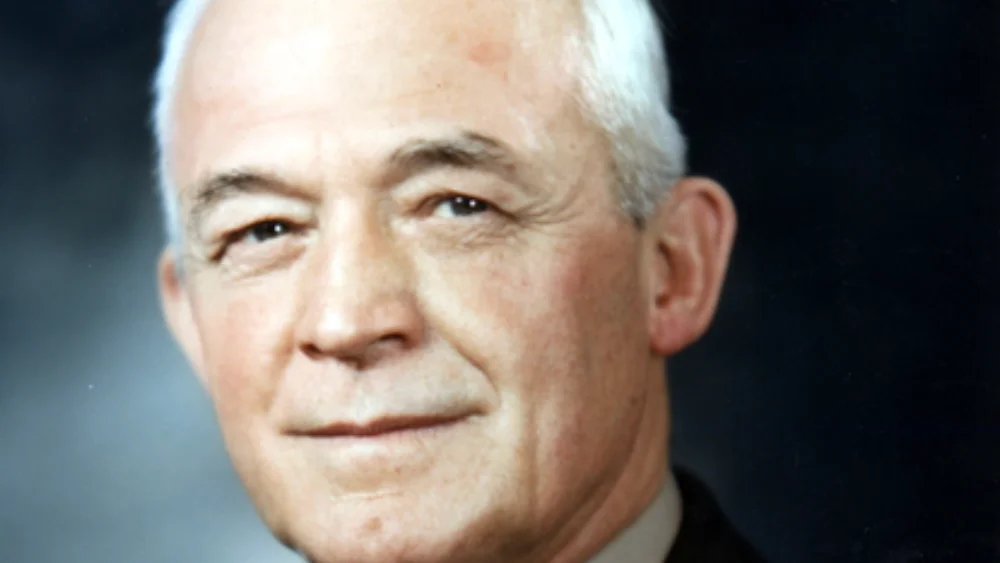Henry H. Arnold, a trailblazing military leader and aviation pioneer, played a pivotal role in shaping the history of the United States Air Force. Born on June 25, 1886, in Gladwyne, Pennsylvania, Arnold’s journey through life would lead him to become the architect of modern American air power.
Early Life and Love for Aviation
Arnold’s early passion for aviation profoundly shaped his entire life. From a young age, he was captivated by flight’s endless possibilities, a defining aspect of his character. His aviation passion was ignited by the Wright brothers’ pioneering flights, which altered human history by unlocking the secrets of the skies. Their determination and achievements inspired Arnold, fueling his unwavering commitment to follow their path and leave his mark in aviation.
Arnold’s aviation passion deepened as he aged, propelling a lifelong journey into the world of flight. Early exposure to aviation marvels and the Wright brothers’ spirit laid his career foundation, guiding his enduring passion and endeavors. Arnold’s life exemplified the lasting impact of childhood fascination, nurtured with unwavering dedication, leaving a profound legacy. His story shows the enduring power of dreams, transformative inspiration, and boundless horizons when one aims to conquer the skies.
Henry H. Arnold: The Formative Years in Military Service
Henry H. Arnold’s journey through the corridors of military service commenced in 1907 when he made the significant decision to enlist in the United States Army Signal Corps. His pivotal decision marked the beginning of a distinguished military career that spanned decades and left a lasting legacy in American aviation history. Arnold’s early development molded him into a vital figure for the U.S. Air Force, emphasizing skills and values.
Arnold’s Army Signal Corps years marked a relentless pursuit of excellence and commitment to military discipline principles. Early military and signal experiences forged a rock-solid legacy foundation for him. Few foresaw that this soldier’s journey would transform aviation, making him a key figure in forming the modern USAF. Arnold’s early military service, filled with lessons and dedication, shaped his pioneering contributions to the nation’s air power.
World War I and Aviation Innovation
World War I ushered in a new era of warfare, and Henry H. Arnold emerged as a key figure in harnessing the potential of aviation technology during this transformative period. His deep expertise in aviation, coupled with a keen understanding of military tactics, became invaluable assets to the Allied forces. Arnold’s diverse contributions included a pivotal role in advancing aircraft for reconnaissance and combat operations, leaving a lasting impact. His visionary efforts reshaped aerial warfare, pushing aircraft’s battlefield capabilities beyond limits.
Arnold’s WWI impact surpassed tactics, influencing aviation strategy and development on a broader scale and significantly reshaping the landscape. His leadership and dedication to advancing aircraft during this critical period shaped the future of military aviation. Arnold’s WWI contributions foreshadowed his role in shaping the U.S. Air Force, cementing his legacy as an aviation and military pioneer.
Henry H. Arnold: Between the Wars: Advocating for Airpower
In the turbulent period between the two World Wars, Henry H. Arnold emerged as a relentless advocate for the advancement of airpower within the U.S. military. His unwavering commitment to the cause of aerial warfare went beyond mere service; it became a lifelong mission. Arnold’s vision and determination played a pivotal role in persuading the military establishment of the need for a distinct and autonomous air force. His tireless efforts and persuasive arguments eventually bore fruit with the establishment of the United States Army Air Corps, marking a watershed moment in the evolution of American military aviation.
Arnold’s influence extended far beyond the bureaucratic realm. His advocacy laid the foundation for the eventual creation of the United States Air Force as an independent branch of the armed forces. His foresight and dedication to the cause of airpower not only reshaped the military landscape but also paved the way for the United States to become a dominant force in the skies. Arnold’s legacy is intrinsically linked to his role in forging a path toward the independent Air Force, a testament to his vision and unwavering commitment to advancing the future of aviation and national defense.
World War II: Commanding the Army Air Forces
Henry H. Arnold’s pivotal role in World War II as the Commander of the U.S. Army Air Forces marked a defining chapter in the history of aerial warfare. His leadership during this critical period oversaw an unprecedented expansion of airpower, transforming it into a decisive element of Allied strategy. Under Arnold’s guidance, the Army Air Forces grew into a formidable force, both in terms of size and technological capabilities. His strategic vision encompassed not only the development of cutting-edge aircraft but also the coordination of massive bombing campaigns, strategic airlifts, and crucial air support for ground forces.
Arnold’s leadership and innovative thinking were instrumental in shaping the outcome of the war. His contributions extended beyond American borders, as his strategic insights influenced the broader Allied effort. Arnold’s legacy as a military commander is inseparable from the Allied victory, where airpower proved to be a decisive factor. His tenure as the head of the U.S. Army Air Forces demonstrated his exceptional ability to harness the full potential of aviation in wartime, forever solidifying his place as a key figure in the history of military leadership and the evolution of air warfare.
Henry H. Arnold: Birth of the U.S. Air Force
Henry H. Arnold’s unwavering commitment to the concept of a separate, autonomous air force culminated in a historic moment in 1947 with the establishment of the United States Air Force. Arnold’s visionary leadership and tireless advocacy paved the way for this significant milestone in the nation’s military history. As the first Chief of Staff of the newly formed Air Force, Arnold assumed a central role in shaping its structure, doctrine, and mission. His dedication to advancing the capabilities of airpower, coupled with his deep understanding of military strategy, was instrumental in defining the role of the Air Force as a distinct branch of the armed forces.
The birth of the United States Air Force represented not only the realization of Arnold’s dream but also a recognition of the unique contributions that airpower could make to national security. Under Arnold’s leadership, the Air Force rapidly evolved into a modern and formidable fighting force, equipped to meet the challenges of the post-World War II era. Arnold’s legacy as the architect of the U.S. Air Force is a testament to his vision, perseverance, and enduring impact on the United States’s defense capabilities.
Promotion to General of the Army
Henry H. Arnold’s exceptional contributions to the United States and its military were duly acknowledged with a rare and prestigious honor: a promotion to the illustrious five-star rank of General of the Army. This promotion was not just a reflection of his personal achievements but a recognition of his pivotal role in shaping the U.S. Air Force and advancing the nation’s airpower capabilities. Arnold’s journey from humble beginnings to the highest ranks of military leadership stands as a powerful testament to his unwavering dedication and visionary leadership, which made a lasting impact on the nation’s defense.
The promotion to General of the Army solidified Arnold’s legacy as a true giant in the realm of military aviation. His exceptional leadership and tireless dedication to the U.S. Air Force elevated him to a position of unparalleled influence and responsibility. It serves as a lasting testament to the profound impact he had on the development and growth of the Air Force, as well as his enduring legacy as a symbol of excellence in military leadership. Arnold’s achievements and rank reflect the transformative impact of individuals devoted to their country’s defense and advancement.

Henry H. Arnold: Legacy and Continuing Influence
Henry H. Arnold left a profound legacy on the U.S. Air Force and the evolution of military aviation, rightfully earning him the title of the ‘Father of the U.S. Air Force. His legacy transcends the boundaries of time and military history, resonating through the principles of airpower, strategic vision, and unwavering innovation. Arnold’s vision and leadership during pivotal moments in American military history set the course for the modern U.S. Air Force, shaping its doctrine, capabilities, and role in national defense.
Beyond his remarkable achievements during his lifetime, Arnold’s enduring influence continues to guide the U.S. Air Force in the present day. His dedication to excellence, relentless tech innovation, and strategic focus define the Air Force’s core values. Arnold’s legacy inspires airmen, highlighting visionary leadership’s transformative impact on national defense for generations to come. The U.S. Air Force evolves, building on Henry H. Arnold’s foundation, ensuring his legacy remains a beacon of military aviation excellence.











